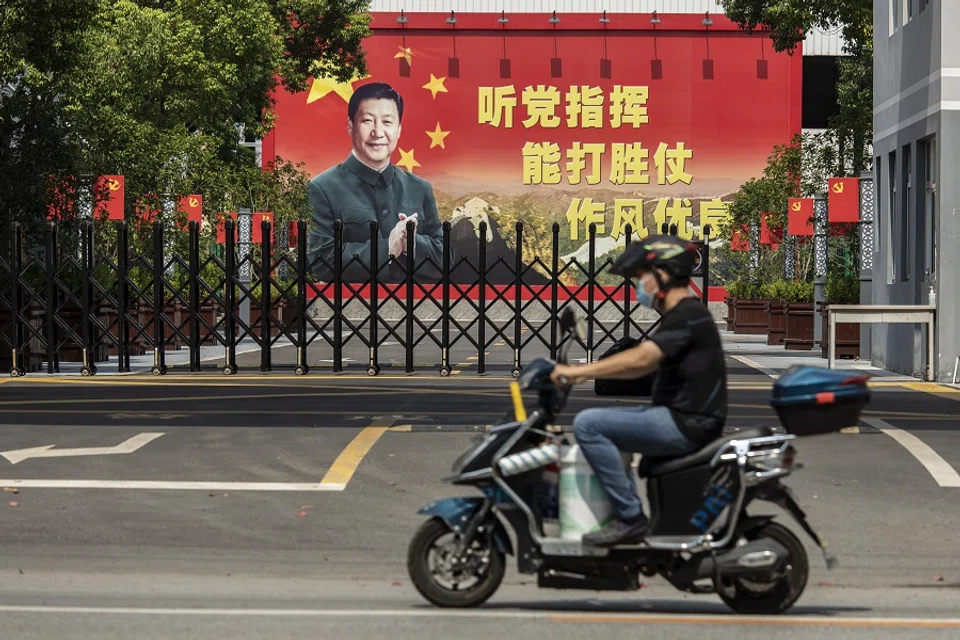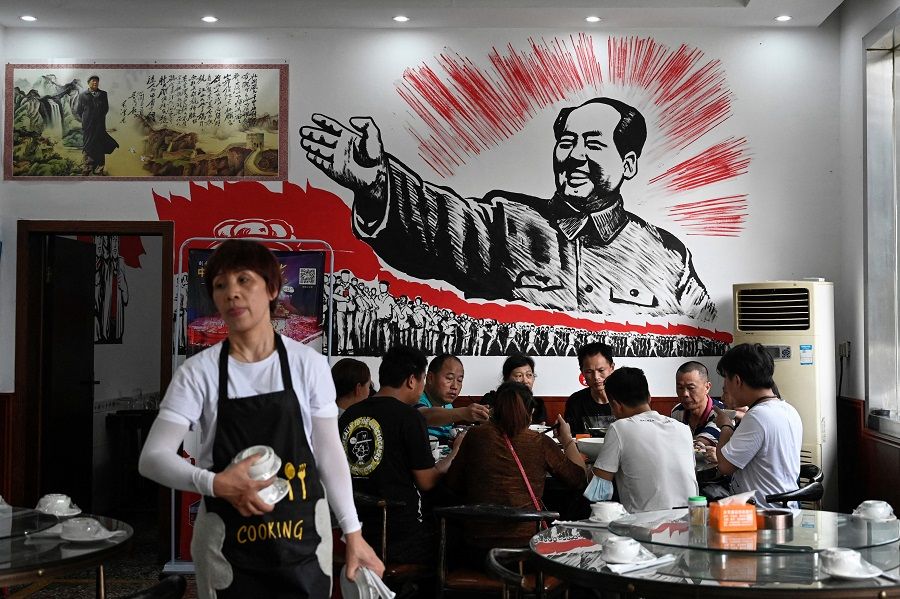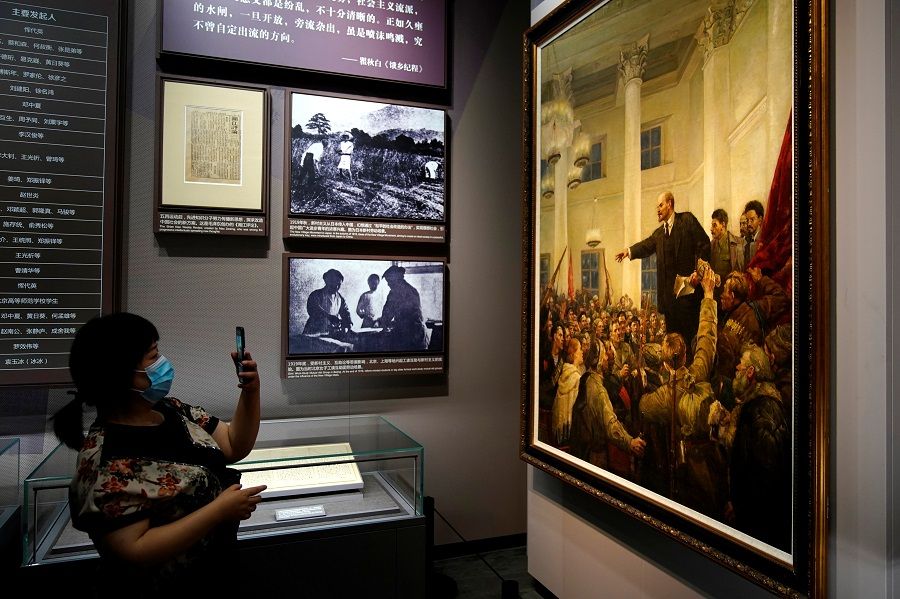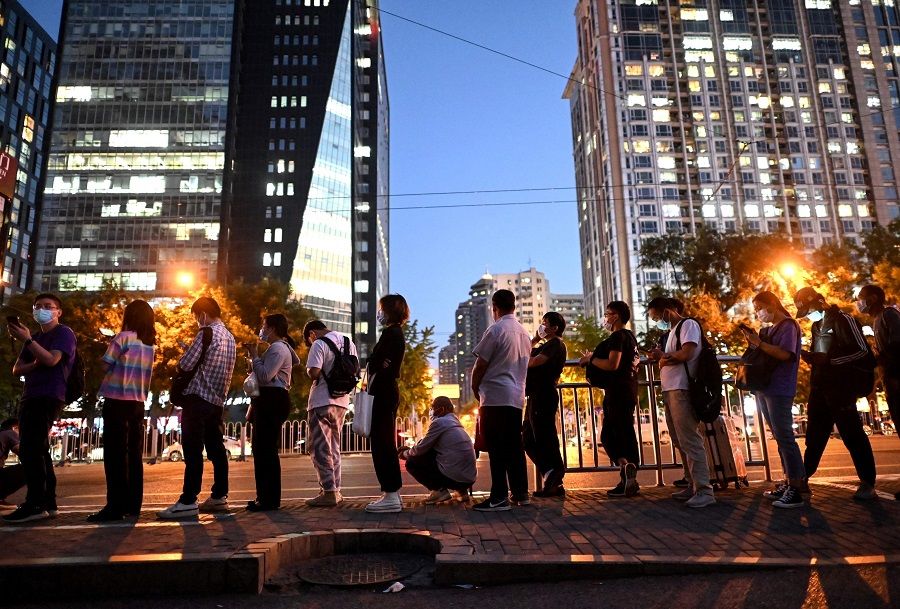A new paradigm needed: China cannot achieve 'common prosperity' with Marxism and class struggle

The Chinese Communist Party (CCP) faces an urgent challenge of theoretical innovation. Here's the nagging question: Why did the Communist Party of the Soviet Union (CPSU) meet its demise and lose the USSR 30 years ago?
The underlying cause was the ossification of its economic model, which rendered it incapable of competing with the capitalist countries. The more direct reason was its political corruption and moral bankruptcy.
That the Soviet Union, the first to put Marxism into practice, fell apart was commonly thought to be proof in no uncertain terms that Marxism would never work. Now, however, the CCP says its success shows Marxism does work. So why didn't Marxism work previously, and why does it work now? An explanation has to be given.
Marxism is not enough
Although the adjustments made by the CCP in praxis (which, to put it simply, may be generalised as "marketisation and internationalisation") are quite clear, the theoretical underpinnings for them remain very much out-of-focus. All we have is basically a reversion to the party's grand tradition in the name of "never forgetting the founding mission" (不忘初心). However, truth be told, the factors behind the success of China's reform and opening up go far beyond Marxism. Fundamentalistic reversion would mean ignoring all such factors that do not fit the mould.
Let us bear in mind that there are two premises that make ideological adjustment an inescapable necessity. One of them is its status as the ruling party while the other is the fourth industrial revolution.
One of Mao Zedong's famous sayings goes: "The truths of Marxism are myriad, but it all comes down to one line: 'Rebellion is justified!'" When the CCP was waging revolution and still trying to gain national power, this statement was a powerful shot in the arm. Once it became the ruling party, to bring this up again was to invite revolt against itself. That was exactly what happened in the Cultural Revolution. Its result was catastrophic, because Mao as a revolutionary was unable to make the transition from "breaking" to "making". He once claimed: "There is no making without breaking. The making is in the breaking." But that was just revolutionary romanticism misaligned with reality. In truth, it is much harder to "make" than to "break".
To actually make the turn from "breaking" to "making", it is necessary to transcend class struggle, and bring about an inclusive, harmonious society in which everyone has their own rights and place.

Marxism has always had little to say in terms of "making". While it offers a penetrating analysis of the fundamental contradictions of capitalism, it hardly has anything solid to say about the communist society itself. On that subject it offers up a mere vision supported by virtually no concrete narrative thereon. No wonder the praxis of building socialism since Marx has taken so many different forms and have mostly been unsuccessful in the end.
Bringing about an inclusive, harmonious society
To actually make the turn from "breaking" to "making", it is necessary to transcend class struggle, and bring about an inclusive, harmonious society in which everyone has their own rights and place. China's social realities and the role the country is to play in the world at large require it to cultivate the quality of inclusiveness. That means it is necessary to go beyond the Marxist orthodoxy.
The emphasis of the CCP's governance should be on coordinating the different social strata and groups, resolving the clashes of interest that arise in the division of labour in society, and not sparking off a class struggle. That's because no conflict is irresolvable by a powerful and domineering state.
Hu Jintao's notion of "harmonious society" was precisely an adjustment to the role of the ruling party, but its realisation requires the forging of a new social contract that is inclusive and based on an all-societal consensus. It is this social contract that will serve as the basis for cognition and judgement in the harmonious society.
The fourth industrial revolution is taking the world into a new era: the post-industrial and post-capitalist age. The new technological revolution is changing the forces as well as relations of production in an unprecedented way. Being based on the realities of the early industrial age, much of Marx's discourse is becoming (or has already become) obsolete.
The knowledge-based economy is changing the rules of the market, creating certain conditions that are conducive for socialist development. The Chinese system enjoys great advantages when it comes to leveraging these conditions, but the way to do it is certainly not the traditional class struggle.
Given China's situation, what parts of Marxism, then, need to be refreshed with the times? There are five facets to consider.
Where does the market stand?
The first facet is the role of the market in socialism. Despite the diversity of the socialist experiments around the world, all of them have to wrestle with one key question: What to do with the market?
While the market does not equate to capitalism, it is replete with the spontaneous forces of capitalism. For this reason, socialist experiments at the state level since Lenin had always suppressed the market, even though they inevitably had no choice but to give way eventually. Lenin adopted the New Economic Policy shortly after the October Revolution.

Subsequently, Stalin's brand of planned economy led to the severe shortage of consumer goods and bred a great deal of corruption. He did leave some "capitalist tails" by the margins of his collectivisation of agriculture though. Mao Zedong went further by cutting off such "tails" left and right, thereby setting the stage for reform and opening up.
Vietnam went through basically the same phases as China did. Countries like Cuba and North Korea had no choice but to loosen their control on the market at some point. Communist parties that hold power locally in Italy and India have always had to deal with the market economy. In Western countries with historical ties with socialism, there have been attempts - think the UK's Labour Party, as well as the Nordic social democratic praxis and welfare state - to implement some of the socialist principles of distribution, so as to alleviate the harshness of capitalist competition.
The most central issue here is about achieving a seamless connection between socialist principles and the patterns of the market economy, so that the vitality of the market may serve socialism.
It must be said that national socialism was not without monumental achievements in the Soviet Union and China. Nevertheless, both countries embraced the market in the end. In the case of China, it is the "socialist market economy". Present-day Russia, on the other hand, ends up with a bizarre market-based economy.
The most central issue here is about achieving a seamless connection between socialist principles and the patterns of the market economy, so that the vitality of the market may serve socialism. This means that, on one hand, private property rights have to be recognised and defended; on the other hand, there is a need to avoid the dark side of capitalism, such as the domination by financial capital, casino capitalism, the cruel squeezing of workers, the damage to the state and society caused by the disorderly expansion of capital, and so on. If these problems are tackled with the orthodox method of class struggle, socialism and the market would be set against each other, possibly leading to ossification and backwardness all over again.
Reappraising the value of labour in a hi-tech economy
The second facet is the labour theory of value. This theory was inherited by Marx from classical political economy, and set as one of the cornerstones of Marxism. However, given the present conditions under the knowledge-based economy, it proves to be increasingly detached from reality.
Historically, the classical economists lived in a time not distant from the age of handcraft workshops, during which the creation of value did indeed depend on the labour of artisans. The agrarian economy of even earlier times was more dependent on manual labour. It was so low on technical sophistication that all it took to run was ample physical strength.
With the present gestalt of globalised production and exchanges, capital and labour have long been intertwined with each other, both being essential for distribution and for driving the development of productive forces.
To achieve "common prosperity", we need to tweak the rules of the game, not destroy the capitalists.

We are facing a future in which both manual and mental labour are being marginalised by increasingly mature automation and AI. The creation of value is relying more and more on the synthesised knowledge and intelligence embedded within technology and capital equipment. Marx himself had foreseen such an eventuality. Writing in a reading journal one evening in 1858, he surmised that the development of science and technology would ultimately make human labour increasingly insignificant - even totally negligible - in social production. When that happens, the logic of the labour theory of value would cease to be tenable, and capitalism would be "blown sky-high".
The root cause of income polarisation in society nowadays is mainly not the exploitation of the surplus value of labour by capital, but an anachronism - namely that the knowledge-based economy is still going by the rules of the market as passed down from the age of the industrial economy. To achieve "common prosperity", we need to tweak the rules of the game, not destroy the capitalists.
Entrepreneurs as builders of socialism
The third facet is class struggle. Marxism sees class struggle as the locomotive of history. Its theory on this matter overlooks the other side of the coin: class stratification was the result of the division of labour in social cooperation. As the ruling party, what the CCP should emphasise is the cooperation side.
Furthermore, most of the capitalists in the age of the knowledge-based economy are entrepreneurs who have built their fortunes from scratch. The immensely rich people of today are often the craziest workaholics. They often apply their wealth to the public good or to open up new domains.
There is, for example, Elon Musk's plan to "make humans a multi-planetary species", not to mention his projects to develop new energy, new transport, brain-machine interfaces and artificial intelligence, all of which are highly significant for humanity.
The CCP has an edge in terms of its policies and system to make China's private entrepreneurs play roles that they would not have under capitalist conditions. It should be made clear that these people are part of the representation of advanced productive forces - that they are builders of socialism, not class enemies.
Sans class struggle
The fourth facet is the question of what route to take to transcend capitalism. According to orthodox Marxist-Leninist theory (in which Mao Zedong was a firm believer to the end), the way is to have the proletariat seize power through violent revolution, then establish a dictatorship to transition into a communist society.
This theory obviously bears an indelible mark of the early industrial society, where industrial workers are highly concentrated, easy to organise, and "immiserised". Since then history's trajectory has deviated from Marx's predictions by far.
For one thing, in the developed capitalist countries, the industrial workers were replaced in droves by white-collar employees, who formed an enormous middle class after the mid 20th century. This group is neither concentrated nor immiserised.

It is in a time of rampant obesity around the globe that the fourth industrial revolution is taking place. Its occupational structure is more dispersed and diversified. The people of today rally behind all sorts of political causes and are very difficult to organise as one, much less mobilise towards building the dictatorship of the proletariat.
Marx's inspired vision of capitalism being "blown sky-high" actually points out a non-violent pathway for transcending capitalism. The CCP's position as the ruling party enables it to build socialism in a planned, step-by-step manner, such that there is no need to pay attention to those who are clamouring (with a different agenda of their own) for class struggle.
The "dictatorship of the proletariat" became a tool for protecting privileges. The same tendency has always existed in China. Mao Zedong fought hard against it all his life. Xi Jinping, too, is fighting an epic battle against it...
Strengthen governance and care for the people
The fifth facet is the most critical: the theory of the state. There are three points to be made with regard to this.
Firstly, orthodox Marxism sees the state as "an executive committee for the ruling class", a tool for class oppression. This claim has already been refuted by the spread of electoral democracy and the welfare state. It is at least not a universal truth. The CCP's "Three Represents" (三个代表, that is, the party represents the most advanced forces of production, the largest majority of the Chinese people, and the advanced culture of China) is an indirect notion of it too.
Secondly, as long pointed out by Western Neo-Marxism, the state has independent interests of its own. This is especially relevant to countries formerly of the socialist camp. The political factor behind the Soviet Union's collapse was that of the CPSU turning into a privileged ruling class indifferent to the fate of the common folks. The "dictatorship of the proletariat" became a tool for protecting privileges. The same tendency has always existed in China. Mao Zedong fought hard against it all his life. Xi Jinping, too, is fighting an epic battle against it, except that his approach is one of fighting corruption, institution-building and the rekindling of ideological faith, rather than calling upon the masses to rise in revolt.
Thirdly, the state performs many functions in providing services and producing public goods, so that there will not be an easy "withering away" as predicted by Marx. The CCP therefore should work hard to improve the quality of its service to the people; build a harmonious, fair and just society; and modernise the state's governing system and capability. The most fundamental challenge however is to prevent the formation of a privileged class, and maintain the regime's affinity with the people.
On all the above accounts, the CCP is on the right track in its praxis but falls short in theoretical innovation. As a result, it is prone to wavering and being hijacked by the leftists. In each of these areas there are great opportunities for the CCP for self-renewal and to revolutionise itself. If it hides its conservatism behind the so-called "theoretical self-confidence", it will miss the golden opportunity (brought about by the current global upheaval) to lead new trends for the world.
The CCP should widen its horizons, draw from a diversity of sources, bring out the best in Chinese civilisation - especially its main themes of harmony and benevolent governance - and also assimilate the strengths of other civilisations and cultures, so as to replace the combative ideology with an inclusive social contract.
Related: 'Winner takes all' no more: China is ready to build the socialist regulatory state | 'Red peril' or benign power: How different is China's CCP from USSR's CPSU? | The CCP's massive left turn and the post-Xi political landscape of China | Can the CCP forge an inclusive social contract and build a healthy civil society? | Building a moral and prosperous Chinese society: Prelude to a social revolution in China? | Why China is cracking down on big capital
